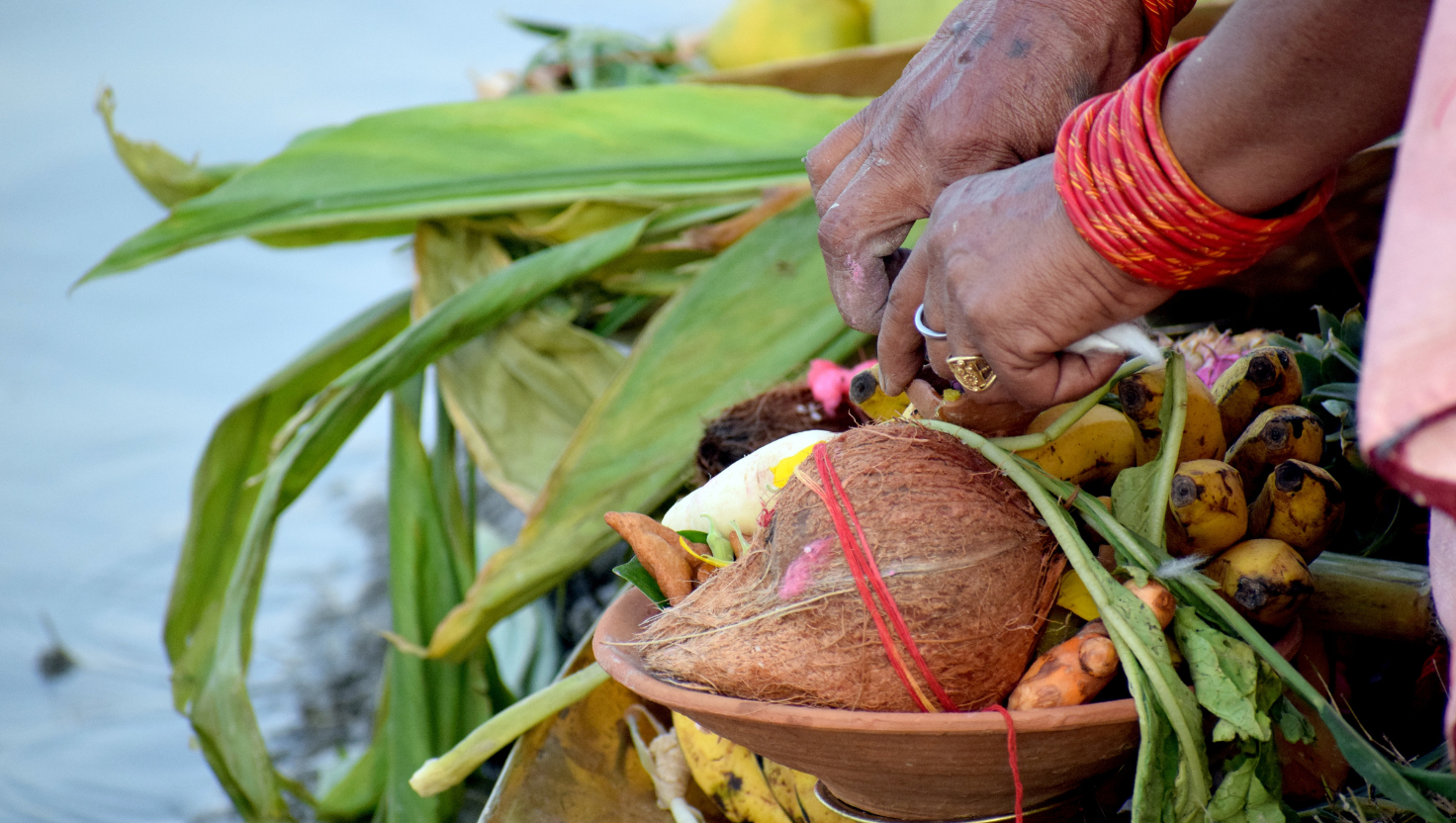1. A Festival Dedicated to the Sun God
Chhath Puja is rare among Hindu festivals because it worships Surya Dev (the Sun) — the source of life and energy. Devotees express gratitude for sunlight and the life it supports, and also worship Chhathi Maiya, believed to protect children and grant family well-being.
The festival’s unique feature is offering prayers to both the setting and rising sun, a practice that balances thankfulness for the past and hope for the future.
2. The Four-Day Divine Journey
Chhath unfolds over four days of disciplined rituals and intense devotion. Every step is designed to purify body and mind:
- Nahay Khay: Ritual bathing and a simple, pure meal to begin the fast.
- Kharna: A day of fasting followed by gur ki kheer and the start of a strict nirjala (waterless) fast.
- Sandhya Arghya: The evening offering to the setting sun at riverbanks with bamboo trays of offerings.
- Usha Arghya: Offering to the rising sun and breaking the fast, followed by sharing prasad.
3. A Celebration of Nature and Sustainability
Chhath’s rituals emphasize a deep bond with natural elements — water, air, earth, and sunlight. Ceremonies take place on riverbanks, without elaborate idols or artificial decor, making the festival inherently eco-friendly. Offerings consist of organic fruits, sugarcane, and handmade sweets, reinforcing sustainable practices.
4. The Power of Women and Family Unity
Women play a central role in Chhath Puja. Their strength and perseverance drive the festival’s rituals and spiritual energy. Families unite to clean ghats, prepare prasad, and sing folk songs. This communal participation strengthens family bonds and preserves cultural memory across generations.
"When millions stand in rivers, facing the setting sun with folded hands and moist eyes, the universe seems to pause." — a moment of collective devotion.
5. Discipline, Purity and Inner Strength
Unlike many festivals centered on feasting, Chhath Puja is defined by self-discipline. The strict nitjala fast, cooking on clean stoves, and the purity of offerings turn the celebration into a process of inner purification and resilience.
6. Global Reach and Unity
Chhath is no longer limited to eastern India and Nepal. Diaspora communities in Mauritius, Fiji, the UK, the USA and many other countries celebrate Chhath, sometimes on rooftops or artificial ponds. This spread shows how the festival’s core values — gratitude, nature, and devotion — resonate across cultures.
Why Chhath Puja is the Biggest Festival
Chhath’s greatness does not come from size or spectacle, but from its depth: sincere devotion to nature, a strong emphasis on purity and discipline, and the power to unite families and communities. It teaches:
- Gratitude for natural resources
- Faith in divine energy
- Strength through discipline
- Equality and collective devotion across social lines
- Harmony with the environment
Conclusion
Chhath Puja is much more than a ritual festival. It is a living lesson in humility, gratitude and coexistence with nature. As the golden sun’s rays touch the water and devotees offer their prayers, Chhath stands as a testament to the simple but powerful truth that faith needs sincerity, not splendor.

